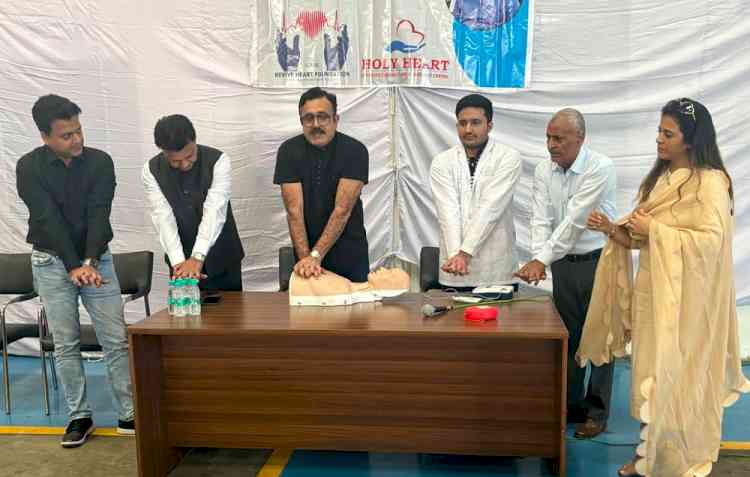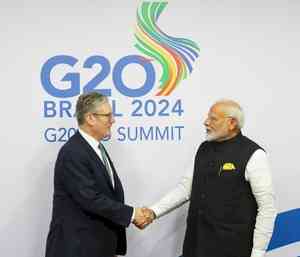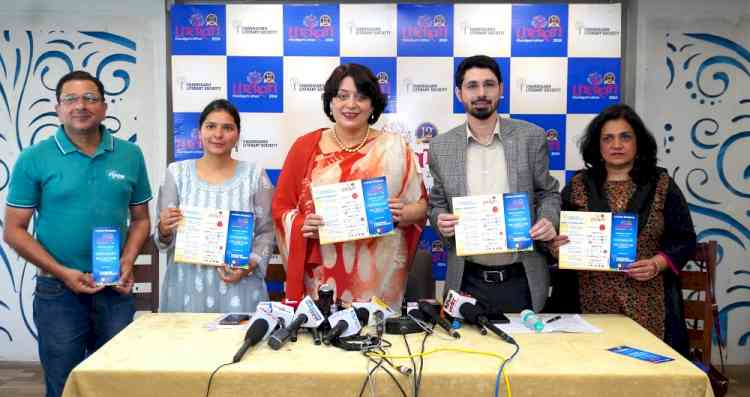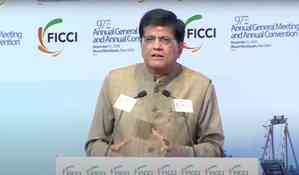Nepal to sell additional 325 MW power in Indian energy market
In a major breakthrough in the energy trading sector, Nepal has received permission to export an additional 325 MW of electricity to the Indian energy market.
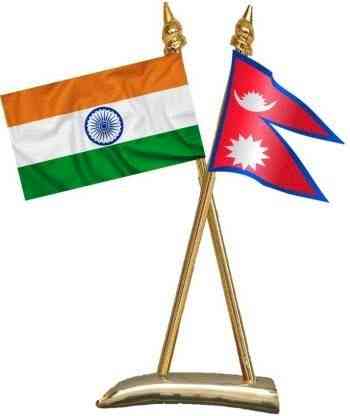
Kathmandu, April 6 (IANS) In a major breakthrough in the energy trading sector, Nepal has received permission to export an additional 325 MW of electricity to the Indian energy market.
The Indian Central Electricity Authority has given approval to the Nepal Electricity Authority to sell an additional 325 MW of electricity in the Indian market, Nepals Energy Minister Pampha Bhusal said during a press conference on Wednesday.
Earlier, Nepal had permission to export only 39 MW of electricity to the Indian Energy Exchange. With this new decision in effect, Nepal will now be allowed to export 364 MW of electricity. Nepal and India had signed various agreements during a recent visit of Prime Minister Sher Bahadur Deuba to India. Those agreements are being implemented gradually, according to the Ministry of Energy, Water Resource and Irrigation.
For this new facility, we want to thank the government of India, said Bhusal adding that during the recent visit of Prime Minister Deuba to India we signed a Nepal-India Joint Vision Statement on Power Sector Cooperation which has come into effect.
Although Nepal has been making efforts for a long time to sell the surplus electricity produced during the monsoon in the regional market, it has not been successful. During the India visit of Prime Minister Deuba from April 1-3, India congratulated Nepal on its significant progress in the power sector including becoming a near power surplus country.
"Prime Minister Deuba appreciated India's recent cross-border electricity trade regulations that have enabled key partners like Nepal to access India's market and trade power with India. He also acknowledged with appreciation India's contribution to developing Nepal's power sector, through capacity building and direct support to infrastructure projects related to generation and transmission," said a statement issued by India's Ministry of External Affairs on August 2 after delegation level talks between Deuba and his Indian counterpart, Narendra Modi.
During the visit, both Prime Ministers had agreed that there are unprecedented opportunities for expanding and further strengthening mutually beneficial bilateral cooperation in the power sector including joint development of power generation projects in Nepal; development of cross-border transmission infrastructure; bi-directional power trade with appropriate access to electricity markets in both countries based on mutual benefits; market demand and applicable domestic regulations of each country; coordinated operation of the national grids and institutional cooperation in sharing latest operational information, technology and know-how.
To expand such cooperation to include their partner countries under the BBIN (Bhutan, Bangladesh, India and Nepal) framework subject to mutually agreed terms and conditions between all involved parties. Based on their respective national policies and climate-change commitments, to make renewable energy production, hydropower in particular, a cornerstone of their energy partnership, the statement read. "That Indian investment into Nepal's renewable power sector, in particular the hydropower sector, has the potential to benefit both the countries by strengthening their economies, generating employment, enhancing export earnings and contributing to further development of industrial and financial capacities, and mutually agreed sharing of other benefits."
Nepal, during the meeting between Deuba and Modi also invited Indian companies to invest in the development, construction and operation of viable renewable power projects, including in the hydropower sector. including storage-type projects through mutually beneficial partnerships. The Prime Ministers of both the countries have described the Common Vision as the biggest achievement so far in the energy sector. It is believed that this will pave the way for exporting surplus electricity to India, Bangladesh and Bhutan.
"It is a matter of happiness that Nepal is exporting her surplus electricity to India. This will make a huge contribution to Nepal's economic progress," Modi had said addressing the joint press conference with Deuba on Saturday. "I feel further happiness that we are going to accept Nepal's proposal to sell additional electricity in India."
Modi's statement allayed longstanding Nepalese fears that India may refuse to procure surplus electricity generated in Nepal, assuring that proposals for import of Nepali electricity will be accepted. Nepal is currently buying electricity from India during the dry season but will be able to sell surplus elicitricty to India during the rainy season.


 IANS
IANS 



